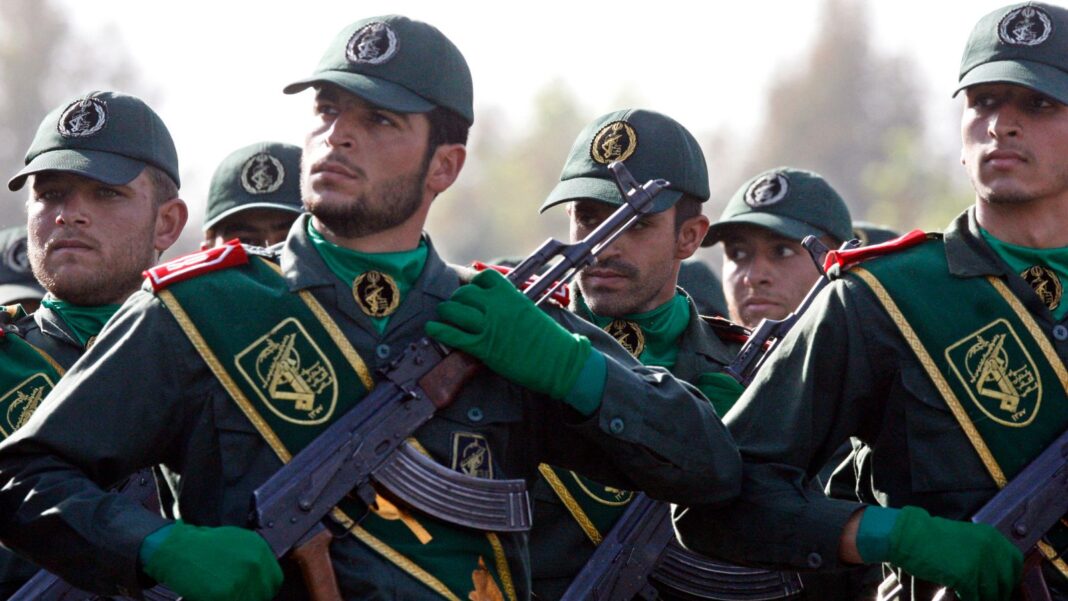Iran’s Revolutionary Guard was formed in 1979 following the Iranian revolution to protect the Islamic regime.
It has evolved over the decades into a political and economic force, as well as a military one.
The Iran-Iraq war in the 1980s saw the IGRC (Islamic Revolutionary Guard Corps) develop into a more structured fighting force and with more than 190,000 members, it rivals Iran’s regular armed forces.
The IRGC has an air force, navy, ground troops, cyber command and the feared Basij paramilitary force which is tasked with domestic security.
Middle East latest: UN watchdog ‘concerned’ Israel could target Iranian nuclear facilities
The UK has imposed hundreds of sanctions on Iran including individual IRGC commanders, as have other Western nations, but it has made little difference to their operations or ambitions.
Please use Chrome browser for a more accessible video player
2:25
Iran ambassador on ‘retaliation’
Read more:
Rishi Sunak facing further calls to proscribe Iran’s IRGC
World leaders call for Israeli restrain
The IRGC, through its Quds force, is a close partner of Israel’s enemies: Hezbollah and Hamas. It also has links to the Occupied Palestinian Territories.
Designating the IRGC as a terrorist organisation would make them the first state agency to be classified and put them in the same category as groups like ISIS, al Qaeda and Hamas.
Although it would make it illegal to support them in the UK, and threaten prison sentences for anyone who did, the designation would have little impact.

Keep up with all the latest news from the UK and around the world by following Sky News
The US, under then President Trump, did take the step in 2019 and Joe Biden has kept the group on the list. Britain, unlike the US, still has a working embassy in Tehran.
These diplomatic links can be extremely valuable during crises and the British government, which will be receiving guidance from its diplomats there, is likely mindful of any consequence to that diplomatic mission should it declare the IRGC a terror organisation.
It’s possible that Washington, recognising the importance of Britain having direct links to the regime, is quietly advising against any move that could jeopardise that.







